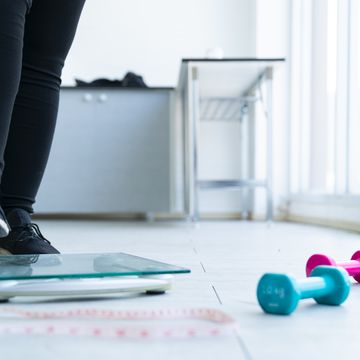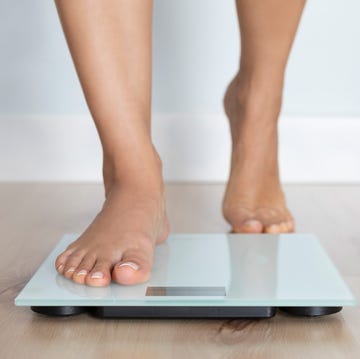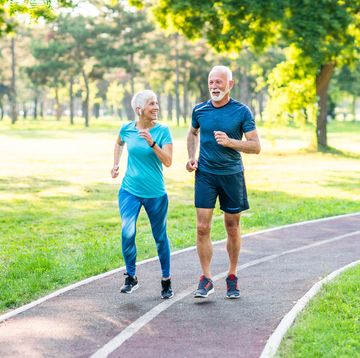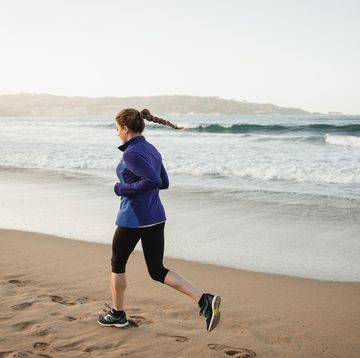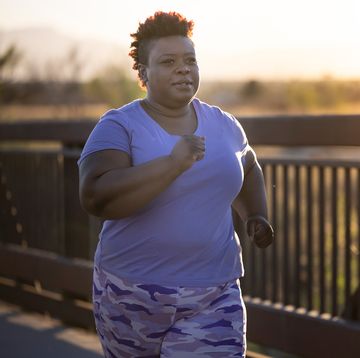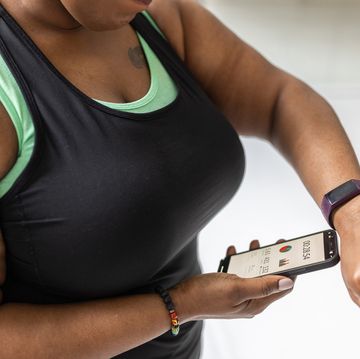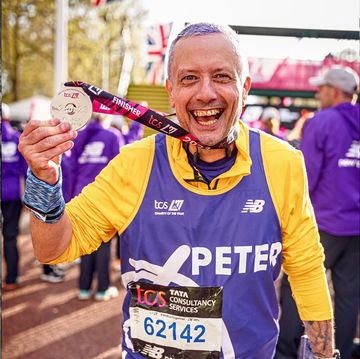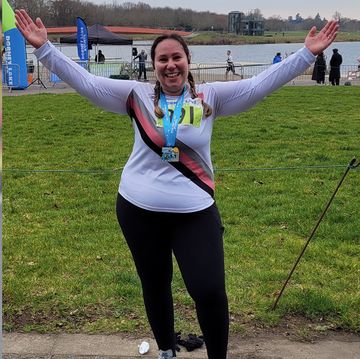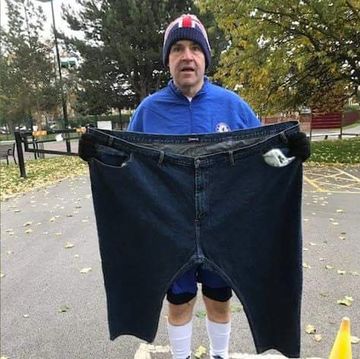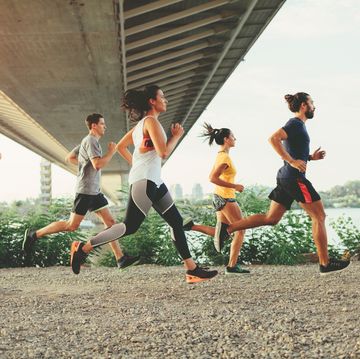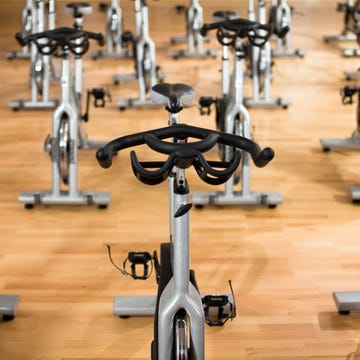Overestimating your calorie burn
Running eats up more calories than most other activities: the average man burns around 120 calories per mile and the average woman burns 105, but you can undo all your good work on a 5K, for example, with something as simple (and tempting) as a chocolate-chip cookie and a sugary coffee.
Correction: Get a better estimate of your calorie burn with an online calculator, or with a GPS watch or fitness tracker that allows you to input your height, weight and other stats. If you tend to indulge after a run, avoid cancelling out your hard-earned calorie deficit by choosing ‘reward’ foods with easily controllable portions, such as single-serving snacks.
Drowning in calories
Calories in a glass count just as much as those on your plate. Alcohol is particularly sneaky: according to the Department of Health, the average wine drinker in England takes in around 2,000kcal from alcohol every month, while drinking five pints of lager a week adds up to 44,200kcal over a year. Add in calories from soft drinks and fruit juice, and you could be overdoing it. Studies show that, in general, liquid carbs don’t contribute to satiety the way solids do. That means if you down 200 calories at the bar, you won’t compensate by eating 200 fewer calories at dinner.
Correction: Most of the fluid you drink should be calorie free: water, diet soft drinks, unsweetened tea. Alcohol may trigger overeating as your inhibitions drop. ‘Moderate drinking means one a day for women, two for men,’ says Rachel Berman, a dietician and author of Boosting Your Metabolism For Dummies (John Wiley & Sons). ‘Cut calories by choosing light beer, wine or spirits mixed with soda.’
Not refuelling post-run
After tough workouts, such as long runs or speedwork, your muscles will be hungry, but you may not be; many runners find their appetite is suppressed just after a workout. ‘But when your body realises its glycogen stores are low, you’ll feel much hungrier,’ says Berman, leaving you prone to eating too much.
Correction: Refuel within an hour of tough or long workouts. A 3-to-1 ratio of carbs to protein is ideal, and ensure this snack contains no more than 300 calories. At around 250 calories per serving, chocolate milk fits the bill nicely.
Mid-race feasting
Addicted to mid-run refuelling? You may be piling on more calories than you need from energy bars, gels, drinks and shakes. ‘Calories from mid-race fuels are dense and don’t do much to suppress hunger,’ says Berman.
Correction: For runs shorter than 60 minutes, skip the gels and sports drinks – water is just fine.
Rushing results
Blame overblown weight-loss expectations on questionable celebrity endorsements or reality shows; the pressure of trying to change everything at once or renouncing certain food groups is often overwhelming, causing you to abandon your weight-loss plan, says Berman. If you are dropping up to two pounds per week, that’s a sustainable pace, she says.
Correction: Make small changes, one at a time. Try to eat a healthy breakfast every day, for example. Swap crisps for an apple at lunch. Rather than heading for the scales, reward yourself with a piece of gear, as these small changes morph into ingrained and sustainable habits.
Skimping on fat
Feeling virtuous with your dry toast and splash of skimmed milk in your coffee? Not so fast: your body needs fat to absorb vitamins such as A, D, E and K, and to regulate hunger; fats are digested more slowly than carbs and protein, keeping hunger at bay. It’s also believed that fat helps your body sense the appetite-regulating hormones ghrelin and leptin, says nutritionist Lisa Ellis. A no-fat or very-low-fat diet leaves those hormones out of whack.
Correction: Fat should make up 20-30 per cent of your daily calories. But avoid trans fats (in processed foods) and moderate your intake of saturated fats (such as those in meat and dairy). Rely on mono- and polyunsaturated fats (olive oil, nuts, seeds, avocados, fish); these promote satiety. A recent study found that even the aroma of some fats, particularly olive oil, may prompt the release of satiety-inducing hormones.
Running on empty
You may have heard this one: hit the road without breakfast and your body will burn fat. But it doesn’t always work that way. Rather than seeking out fat immediately, your muscles first use carbs that have been stored in your muscles as glycogen, says Berman. When those stored carbs run out and your body starts to burn fat, your energy drops, forcing you to slow down and burn fewer calories than if you’d properly fuelled up.
Correction: If you’re heading out for 30 minutes or less on an easy run, you can skip a pre-run snack, since you probably have enough glycogen to power you. But if you run longer or harder, you should have a 100-200-calorie snack about an hour before your run. Choose carbs and a bit of protein, such as a banana with peanut butter, and drink water to hydrate.
Not adjusting
Bigger bodies burn more calories, so you’ll see results more quickly if you have lots to lose. But as you shed pounds, your body adjusts and burns fewer calories (including while running), so you need to make changes.
Correction: Every time you lose 10-15 per cent of your weight, you should readjust your calorie intake, says Berman. Find your new needs here. Recalculate your exercise burn, too, since that also decreases as you slim down.


